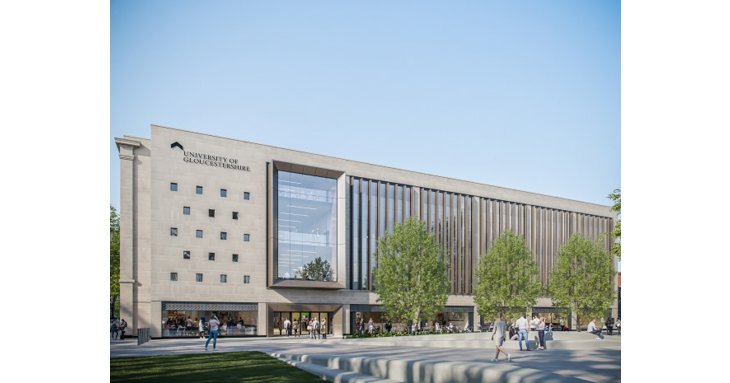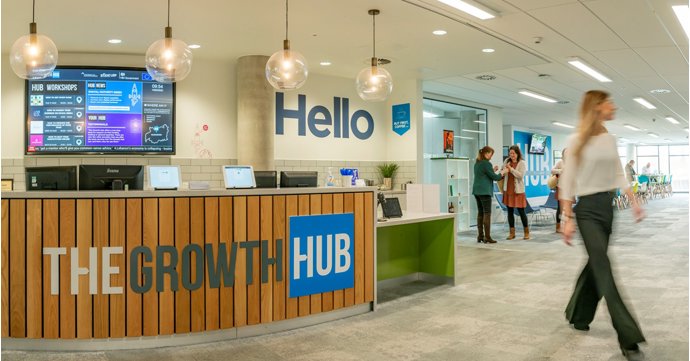The University of Gloucestershire has ambitious plans to grow by more than 65 per cent by 2032, taking student numbers to 19,000 – and those plans are already well underway.
Last year the university made headlines by spending more than £3 million on Gloucester’s former Debenhams department store and revealing plans to radically transform it into a new city centre campus.
Before anyone had time to consider what that meant for the university, it became part of a successful bid for £20 million of government levelling-up cash to help with the project – and it has just announced that it has secured £29 million in loans from Barclays, too.
Its ambitious expansion plans, approved by its internal council following ‘a major review to assess our capacity for growth in student numbers over the next decade’, are mapped out in its just-published strategic plan for 2022 to 2027.
‘We believe the quality and style of university experience we offer will support long term growth in demand,’ said the university’s annual report, signed by chairwoman of its council Nicola de Longh and vice chancellor Stephen Marston.
The university believes it can ‘realistically’ aim for growth of more than 50 per cent by 2030, which would take student numbers from 11,486 to 17,229 – just over half of the numbers at the University of the West of England.
Student numbers already grew by 21 per cent last year, with its strategic review giving a target of 30 per cent by the end of 2027 and 65 per cent by the end of 2032, which would take the student headcount to almost 19,000.
The strategy maps out the ‘continued extension of the portfolio of courses on offer’, not least its increasingly popular higher and degree level apprenticeships.
The number of enrolled apprentices rose from 40 in 2016/17 to 561 in 2020/21, with 700 apprentices expected to enrol in 2021/22.
The university’s impressive growth plans explain the need for the former Debenhams building off King’s Square – which is set to become the new School of Health and Social Care and School of Education and Humanities – and the on-going project to build new student accommodation at the city’s Blackfriars site, overseen by Gloucester firm Vitruvius Management Services.
For those who judge universities by the bottom line of how many students get jobs, rather than growth alone, the University of Gloucester points out 90.1 per cent of its UK first degree graduates were in sustained employment, further study or both a year after graduation, 89.1 per cent three years after graduation and 89.6 per cent five years after graduation, ranking it joint 50th, 51st and 16th out of the 152 higher education providers nationally.
For more information, visit glos.ac.uk.





















